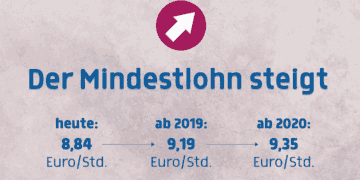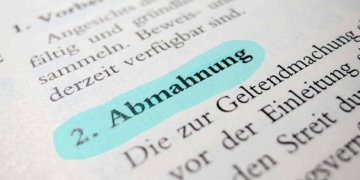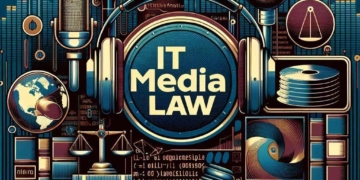Introduction
Arbitration agreements have a good reputation in the games sector: confidential, faster, internationally compatible. Publishers and platforms have been using them for years in end user licenses (EULAs), often combined with class action waivers. In practice, however, very different legal cultures clash. While mandatory individual arbitration against consumers is established in the USA, German and European law imposes strict limits. At the same time, an independent contractual culture has developed in the B2B sector, in which arbitration tribunals – if properly designed – bring tangible benefits: predictable proceedings, specialized arbitration panels, flexible procedural design, confidentiality, better enforceability via the 1958 UN Convention (New York Convention).
The article classifies the legal situation in Germany and the EU, explains the latest developments regarding the opt-out of the law on general terms and conditions in arbitration proceedings, uses prominent EULA examples to show why consumer arbitration regularly fails in this country and translates these findings into resilient contract modules for studios, co-development partners and publishers. The goal is a realistic roadmap: Where is arbitration actually worthwhile – and how is it drafted in such a way that it bears up in everyday games.
Legal framework: Consumers, GTC control and form
The German rules of civil procedure make a clear distinction between B2C and B2B. The decisive pivotal point is Section 1031 ZPO. Section 5 requires a qualified form for consumer contracts: arbitration agreements must be contained in a document signed by both parties. Click-wrap EULAs, checkboxes in the launcher or “I agree” buttons do not meet this requirement. Anyone who wants to enforce arbitration “by click” against end users regularly fails in Germany due to the form alone.
In addition, there is the law on general terms and conditions: Clauses in EULAs are subject to the content control of Sections 305 et seq. BGB (GERMAN CIVIL CODE). At European level, the standard is based on Directive 93/13/EEC on unfair terms in consumer contracts. The annex to this directive lists clauses that make it more difficult for the consumer to take legal action as examples of problematic clauses – including, in particular, the obligation to engage in arbitration proceedings if these effectively frustrate or make it unreasonably difficult to assert claims in court. National courts must scrutinize such clauses strictly. In the EU, mandatory consumer arbitration is therefore only tenable within narrow limits.
Consequence: A “US-style” EULA arbitration clause is generally not effectively agreed in Germany. Anyone wishing to bind end users in the EU to arbitration courts would have to comply with the strict written form – i.e. obtain a separately signed document. This is hardly practicable in day-to-day distribution and is therefore not a sensible option for standard EULAs.
Current case law: BGH 2025 on opting out of the law on general terms and conditions in arbitration proceedings (B2B)
While the consumer area is characterized by form and GTC control, the Federal Court of Justice set an important course for B2B arbitration proceedings in its decision of 9 January 2025 (I ZB 48/24): The parties had chosen German law for the arbitration proceedings in a contract to the exclusion of German law on general terms and conditions (Sections 305 et seq. BGB). The question of whether such a “selective choice of law” is permissible was not conclusively decided by the BGH itself, but the arbitration clause was deemed valid as such and emphasized that it is up to the arbitral tribunal to decide on the scope of the choice of law in accordance with Section 1051 ZPO. This makes it clear that the validity of the arbitration clause does not depend on whether the accompanying choice of law (German law without GTC law) holds later. This increases legal certainty for B2B parties who wish to consciously reduce the control of general terms and conditions in arbitration proceedings; state courts only intervene in recognition/enforcement proceedings via public policy. (
The decision has direct relevance for typical B2B games constellations: Publishing, co-dev and subcontracting agreements with an international connection can provide for tailored arbitration clauses without the clause being shaken simply because a narrow substantive regime (e.g. German law with modified GTC control) is to apply in the arbitration proceedings. Whether and to what extent the GTC control can actually be “opted out” is left to the arbitral tribunal and, as a result, to the public policy proviso; the arbitration clause remains unaffected by this.
EULAs of major publishers: lived practice – and their limits in the EU
A look at prominent EULAs shows the extent to which legal cultures diverge:
- Epic/Fall Guys: The EULA expressly refers to an arbitration agreement and a class action waiver. The concept is clearly aimed at the US market; in the EU/DE, it regularly lacks the qualified form and substantive viability.
- Blizzard: In addition to the arbitration clause, there is a 30-day opt-out mechanism that allows users to opt out of arbitration. This improves the fairness balance – but does not change the German form and terms and conditions problem.
- Nintendo: Newer versions of the EULA – from a US perspective – also rely on binding individual arbitration proceedings with an opt-out window and class action waiver. In the EU, such a clause will fail due to the aforementioned hurdles.
Two lessons can be learned from this practice. Firstly, global EULAs deliberately work with regional differentiations; US clauses are not blueprint material for the local market. Secondly: B2C arbitration can hardly be implemented with legal certainty in German mass business – and should therefore not be the core instrument for resolving disputes with players.
What belongs in the EULA instead
Nevertheless, the EULA remains an important governance component. Realistic, EU-compatible alternatives to mandatory arbitration are:
- Multi-stage escalation clauses without compulsory arbitration: informal clarification, then mediation/arbitration, only then state courts at the agreed place of jurisdiction.
- Transparent jurisdiction and choice of law clauses in compliance with the consumer-protecting conflict of law rules (in particular Art. 6 Rome I Regulation; national mandatory standards remain unaffected).
- References to out-of-court dispute resolution (e.g. arbitration bodies under the VSBG) and the EU ODR platform, without obligating consumers to a specific ADR procedure.
- Clear, understandable language without surprises – the GTC control also checks transparency and reasonableness.
This design avoids formal ineffectiveness, reduces friction with consumer authorities and minimizes reputational risks without having to forego orderly escalation paths.
B2B: Arbitration as a real efficiency lever – if designed precisely
Arbitration offers substantial advantages between studios and publishers, in co-dev networks or vis-à-vis specialized subcontractors (audio, art, porting). The DIS Arbitration Rules 2018 are a viable basis for German and European constellations; they contain modern procedural instruments, consolidation and multi-party options, rules for efficiency management and model clauses as a formulation aid.
Registered office, language, applicable law
The arbitration clause should clearly define the seat (e.g. Berlin, Cologne, Munich), language (German/English) and applicable law. The seat controls the jurisdiction for setting aside and enforcement; the language influences the speed and costs; the choice of law determines the substantive guidelines. The BGH decision 2025 increases the freedom of design here: a selective choice of law (e.g. German law with modified GTC control) will not bring down the arbitration clause for this reason alone; the arbitral tribunal will examine whether the substantive choice is valid – with the safety net of public policy.
Multi-stage dispute resolution
Games contracts benefit from multi-tier clauses (negotiation → mediation → arbitration). This forces the parties to engage in a structured preliminary phase before the avalanche of costs rolls in and gives them leeway in milestone phases. The DIS has model clauses for such multi-stage proceedings that can be transferred precisely to developer/publisher relationships.
Consolidation and co-parties
Game projects often involve several contracts: Engine license, port studio, art pipeline, QA, localization, marketing co-op. A consolidation clause and joinder rules avoid parallel proceedings. If the clause already provides that closely related disputes can be negotiated in arbitration proceedings, this saves time, money and contradictory results.
Urgent legal protection and IP carve-outs
Not everything necessarily belongs in arbitration. Interim legal protection in the event of imminent IP infringements or leak scenarios must be swift. Many clauses therefore combine arbitration with a carve-out for urgent measures before state courts (“injunctive relief without prejudice to arbitration”). This ensures the ability to act in practice and avoids a standstill until the tribunal is constituted.
Confidentiality, document management, technical expertise
Games disputes are technology and production-heavy. Confidentiality clauses in arbitration proceedings protect build pipelines, tools, source code and internal roadmaps. Procedural rules on document production (protection of source code, source escrow access only via neutral experts, secure data rooms) and qualification requirements for arbitrators (e.g. software/IP experience) ensure that the proceedings are conducted on an equal footing.
Cost control
Unlike EULAs in the consumer sector, B2B parties can define cost paths: Advances, cost bearing of “loose pays”, caps for certain procedural steps. This increases calculability and prevents procedural gaming.
Typical areas of dispute in games B2B – and what the clause should say about them
Milestones and acceptances. Many conflicts revolve around deadlines, acceptance criteria and the “definition of done”. Proper dovetailing of the acceptance regime and arbitration clause reduces escalation costs: short deadlines, technical arbitrator option, closely timed procedural windows.
Scope creep and change requests. Without a change mechanism, every feature discussion becomes a matter of principle. The arbitration clause should refer to a change control board and make it clear that only formally approved changes are “dispute-proof”.
IP ownership and license chains. Disputes over rights to tools, pipelines or pre-existing assets can be avoided if the arbitration clause harmonizes with the IP rules: Which issues are assigned to the tribunal, which urgent measures are reserved for state courts?
OSS compliance. Open licenses quickly become a stumbling block (copyleft effects). A technical appendix for the provision of SBOM/third party notices and an accelerated procedure for compliance disputes (e.g. written procedure within 60 days) prevent release delays.
Revenue share and audit. In the case of publisher deals, audit rights (frequency, scope, auditor qualification) and an arbitrator option for pure calculation issues should be provided for – separately from the actual arbitration proceedings.
Examples from e-sports practice
Some ecosystems rely on specialized arbitration/arbitration mechanisms for financial and contractual disputes between teams, players and organizers. This illustrates that tailored, sector-specific procedures work – but typically in a B2B context and not in the classic consumer EULA context.
Draft outline for robust arbitration clauses (B2B)
The following drafting points have proven their worth in games contracts; they are deliberately formulated close to the text so that they can be neatly integrated into work, co-development or publishing contracts. The DIS with its model clauses is a suitable reference for institutional integration.
(1) Scope of application. “All disputes arising out of or in connection with this contract, including its validity, shall be finally settled in accordance with the Arbitration Rules of the German Institution of Arbitration (DIS).”
(2) Seat and language. “The seat of arbitration shall be Berlin. The language of the proceedings shall be English.”
(3) Composition. “The arbitration tribunal shall consist of three arbitrators; the parties shall each nominate one, the chairperson shall be appointed by the DIS.”
(4) Applicable law. “The arbitral tribunal shall decide in accordance with German law.” – Optional: selective choice of law, e.g. clarification of the scope of the control of general terms and conditions in arbitration proceedings; the tribunal shall assess the effectiveness (in compliance with public policy).
(5) Multi-tier. “Before arbitration proceedings are initiated, a 30-day negotiation phase is to be conducted, followed by an attempt at mediation in accordance with DIS rules; if this is unsuccessful, arbitration proceedings may be initiated.”(DIS)
(6) Consolidation/Joinder. “The Tribunal may – upon request – consolidate proceedings with a close factual connection or involve third parties, provided they are subject to the arbitration agreement.”
(7) Urgent legal protection/IP carve-out. “Notwithstanding the arbitration agreement, recourse to state courts for interim measures to secure rights arising from this contract shall remain permissible.”
(8) Confidentiality/source code. “The parties undertake to maintain the confidentiality of the proceedings; access to source code is only granted via court-certified experts/NDA-bound auditors in secure data rooms.”
(9) Costs. “The costs shall be borne by the unsuccessful party; the Tribunal may apportion costs proportionately. Advances in accordance with DIS rules.”
This outline is not a rigid template, but a checklist; the details depend on the structure of the specific project.
What does not belong in the EU-EULA – typical misconceptions
“One click is enough.” This is not true for consumers. § Section 1031 (5) ZPO requires a personally signed document. Without this form, the agreement is very likely invalid.
“US EULAs show that it can be done.” US EULAs (Epic/Fall Guys, Nintendo, Blizzard) work with opt-out windows and class-action waivers. These mechanics have no general viability in the EU/DE. They are designed for the US market and are regularly non-transferable.
“An arbitration clause always circumvents GTC law.” The BGH clarified in 2025: The arbitration clause remains effective even if a selective choice of law is disputed – but the tribunal decides whether and how GTC control is superseded in arbitration proceedings; public policy sets limits. This is a plus in terms of freedom of design, not a free pass.
Strategic recommendations for studios and publishers
EULA/Consumer level (EU/DE). Realistic, transparent escalation paths without compulsory arbitration. References to voluntary ADR, clear jurisdictions and choice of law in compliance with mandatory standards. Avoidance of complex, non-transparent cascading clauses.
B2B level. Decide on arbitration at an early stage, but not “off the shelf”: suitable seat, language, institutional rules (DIS), multi-tier mechanism, IP carve-outs, consolidation and confidentiality rules. Consciously address the substantive choice of law (possibly “German law light”) – in the knowledge that the tribunal and ultimately public policy form the corrective.(DIS)
Documentation and process suitability. In games disputes in particular, the files are decisive: defined acceptance criteria, change logs, SBOM/OSS inventories, build hashes, metrics on performance and quality gates, audit reports on revenue shares. Making these documents easy to use in the process reduces evidence risks.
Communication & Reputation. Consumer rights disputes are conducted in public – forums, social media, trade press. An EULA that visibly focuses on fairness and transparency builds trust. US arbitration clauses including class waivers create unnecessary friction in EU communities.
Frequently asked practical questions – briefly classified
Does an EULA arbitration clause at least apply to “power users” (creators, streamers)? The decisive factor is the consumer status in the specific context. Influencers are also typically consumers when gaming; the B2B gaming rules only apply if the contract is clearly concluded on a professional/commercial basis.
Can the written form be solved digitally (qualified e-signature)? § Section 1031 (5) ZPO refers to “signed by hand”. In practice, a handwritten signature is required; a qualified electronic signature could be discussed, but is not market practice and involves risks – especially in the case of mass distribution.
Is mediation compulsory? No. But mediation as a mandatory preliminary stage saves costs and preserves business relationships – often more valuable in milestone phases than “quick legal action”.
How do you secure urgent legal protection? Through carve-outs: interim measures are reserved for the state courts, the main proceedings take place in the arbitration forum.
What about third-party financing? Third-party funding is common in larger B2B disputes; the clause may provide for disclosure and conflict of interest rules.
Conclusion
For – what really works (and what doesn’t) – what really works (and what doesn’t) effectiveness of the arbitration clause from disputes to substantive choice of law and thus opens up scope to specifically anchor arbitration as an efficient forum. With DIS model clauses, a clean choice of seat/language/law, multi-tier mechanics, IP carve-outs, consolidation and confidentiality rules, the result is a tailor-made dispute resolution system that suits games production: fast, close to the field, internationally enforceable – and at the same time compatible with the limits of European consumer law. ( DIS)













































